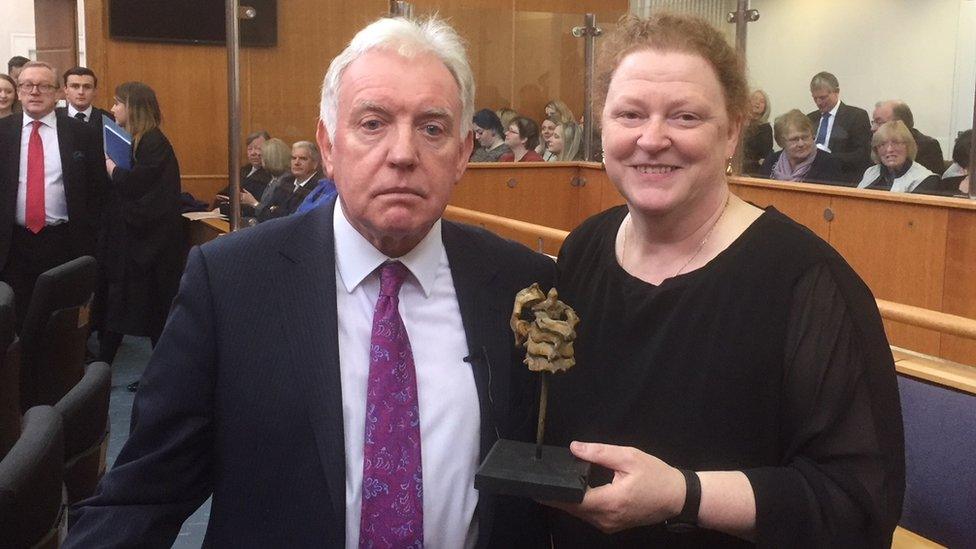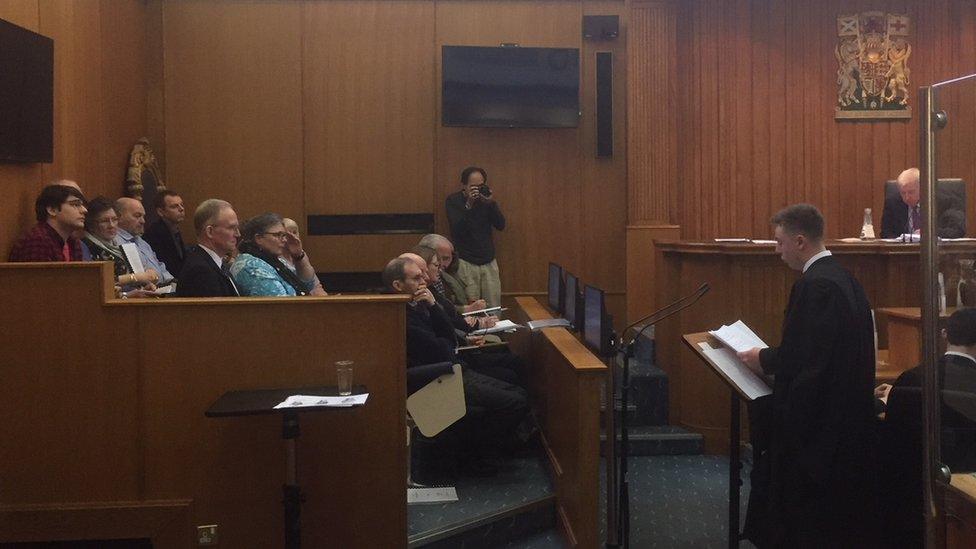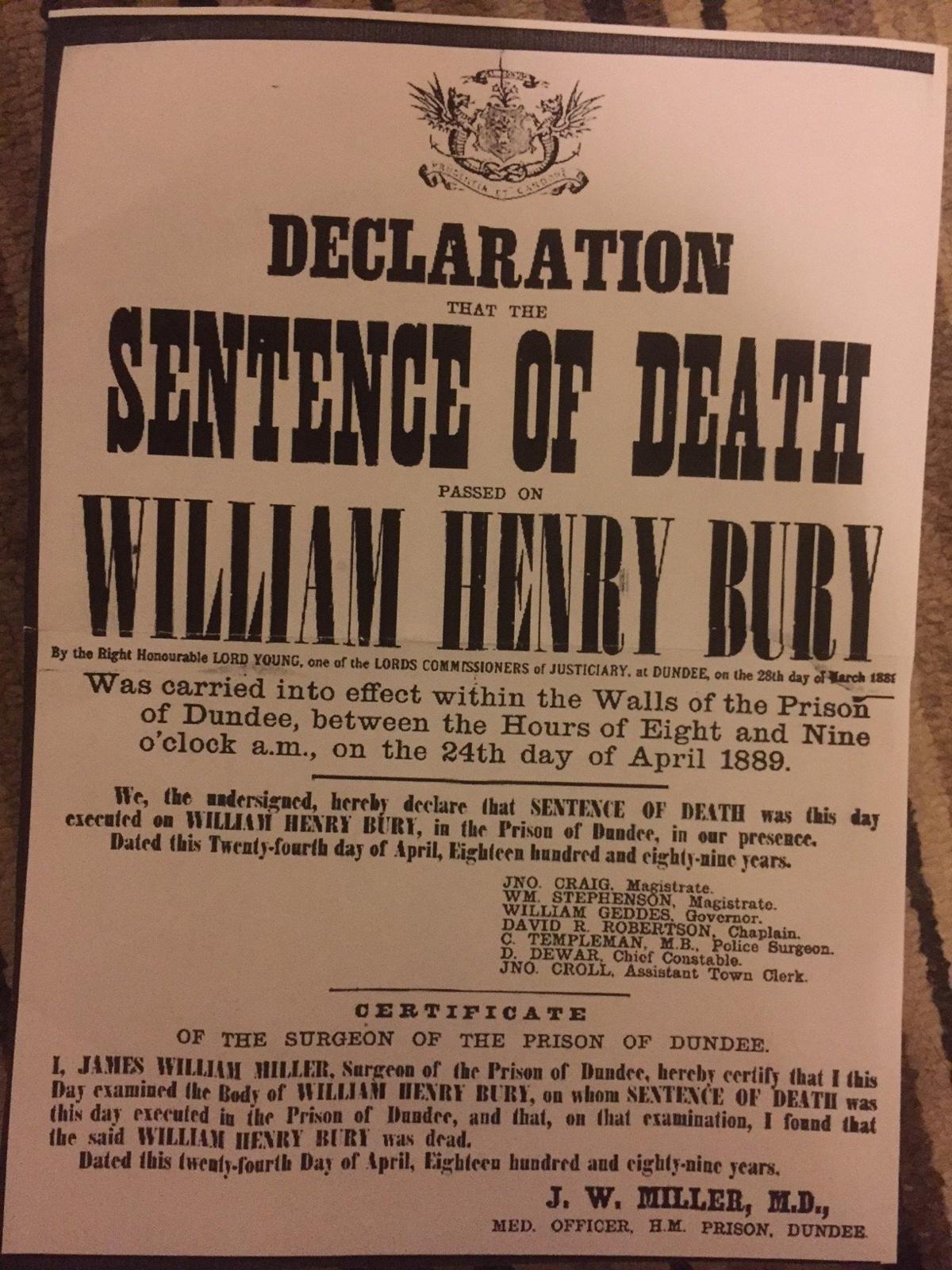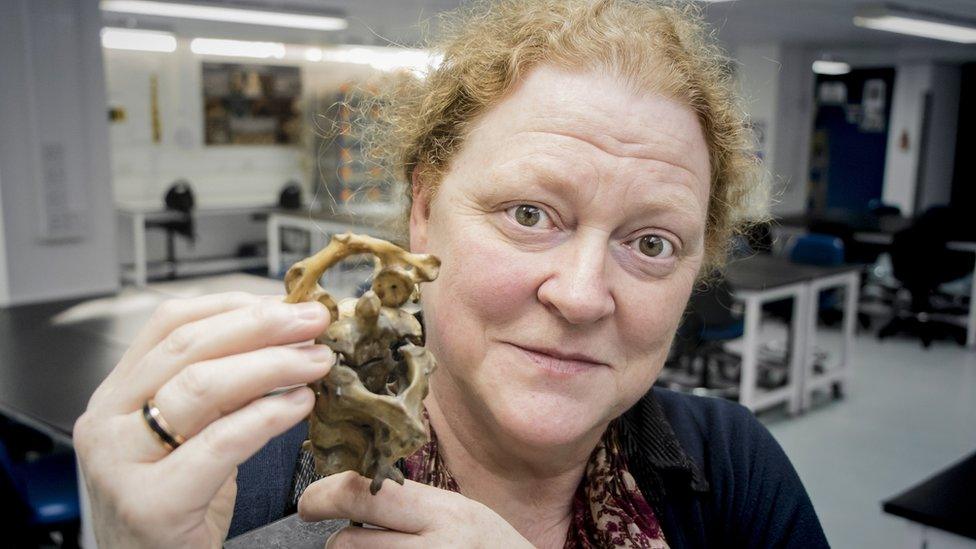Last man to be hanged in Dundee 'acquitted' at mock retrial
- Published

Judge Lord Matthews and Prof Dame Sue Black oversaw the trial at Dundee Sheriff Court
A mock retrial of the last man to be hanged in Dundee has "acquitted" him of murdering his wife.
William Bury was originally found guilty of killing his wife Ellen and was executed in 1889, after initially claiming to be Jack the Ripper.
Law students from Aberdeen University and Dundee University took part in the mock trial before judge Lord Matthews.
An invited jury found in favour of the Aberdeen team, who were defending the case.
The mock trial was heard in the Dundee Sheriff Court courtroom where the original trial was held.
Bury's neck vertebrae, which was removed following his dissection, was displayed in the court room during the mock trial.
Bury's original conviction rested largely on medical evidence.
The evidence was re-tested in the mock trial using today's forensic science standards.

The jury in the mock trial heard closing speeches from the prosecution and defence
The prosecution and defence student teams heard evidence from forensic scientists Dr John Clark and Prof Richard Shepherd.
The medical evidence focused on the angle of a ligature mark on Ellen Bury's neck.
The prosecution argued that this showed that Bury strangled his wife, before disembowelling her and cramming her body into a wooden trunk.
The defence argued that the angle of the ligature mark supported Bury's claim that his wife took her own life by "self strangulation" and the cuts to her body were made after her death.
The students were mentored by Alex Prentice QC and Dorothy Bain QC.
The event was staged as part of the 130th anniversary celebrations of the establishment of the Cox Chair of Anatomy at Dundee University.
Prof Dame Sue Black, director of Dundee University's Centre for Anatomy and Human Identification, said: "All these people giving their time to reconsider the evidence of a crime committed 130 years ago shows that history stays alive.
"History isn't something that's dead, it's something that's very vibrant, very alive, and today we can still experience it.
"It was a marvellous afternoon."

William Bury was hanged in 1889 following a 13-hour trial at Dundee Sheriff Court
- Published15 January 2018
